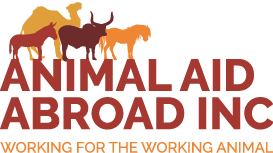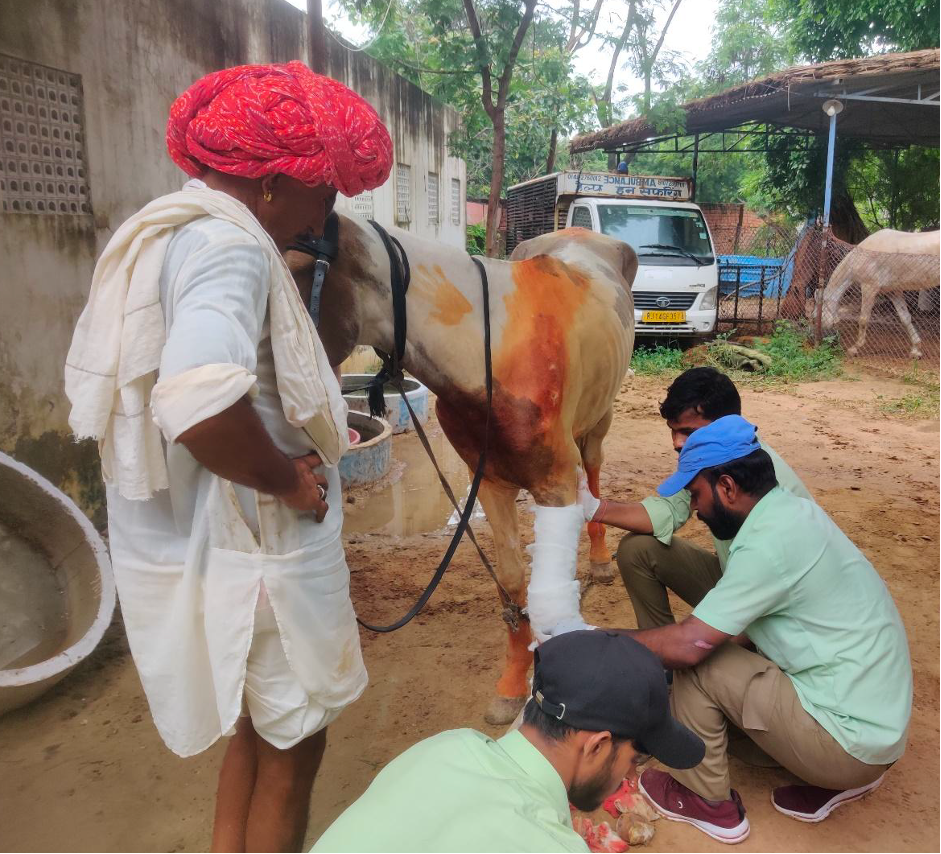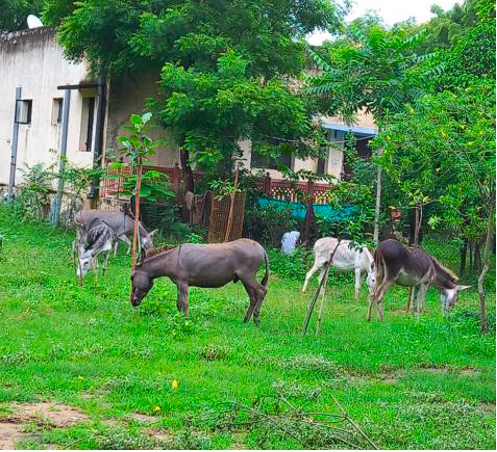Help in Suffering Equine Program - July to September Update
Thanks to our wonderful donors, AAA fund an ongoing program for working equines in India, which is run by partner group, Help in Suffering (HIS). From July to September, your donations enabled HIS to assist 58 working equines in need of care and treatment. The veterinary team treated equines with colic, weakness, lameness, lacerated wounds, maggot-infested wounds, a hoof abscess and hoof tumour, fractures, tick infestation and an eye infection.
You can read about some of these cases below:
This mare was admitted to the HIS hospital with colic and underwent fluid therapy.
This horse also underwent treatment for colic.
The HIS team saw this a horse with a lacerated wound. The owner travelled 30km from the outskirts of Jaipur, to bring his mare to HIS after she met with an accident that cut her right leg. Vet, Dr Pramod, sutured the wound and provided all necessary medications. The owner was very pleased with the treatment provided by HIS and plans to seek follow-up care from a local veterinarian in his village.
This mare had ticks in the ventral side of her tail and anal opening. She was given a bath to rid her of the ticks.
The HIS team saw a horse who had sustained multiple open fractures in his leg following an accident. He was admitted to HIS for ten days and his owner abandoned him. Unfortunately, the poor horse could not be saved and passed away.
This mare was diagnosed with a hoof tumour. HIS provided treatment and asked the owner to bring in his mare for regular checkups at the hospital.
The team assisted this mare who had a maggot wound near her anal opening. Oral medicine and antibiotics were given to the owner.
A donkey presented with a maggot wound in his hoof. The vet team cleaned and treated his hoof successfully.
This horse had a hoof abscess. The vet team provided appropriate treatment for the hoof.
Here, one of the HIS vets is giving a horse an intrathecal injection for an eye infection.
Dr Pramod teaching vet assistant, Sitaram, how to complete a routine checkup. This mare was also dewormed and given a tetanus injection before being discharged from the HIS hospital.
HIS saw 40 equines at their Camel Rescue Centre (CRC) in Bassi from July to September. One case seen involved a mare who had been hit by a vehicle, causing a deep, lacerated injury on her left shoulder. Dr Jitendra performed emergency surgery, which was successful. The mare recovered fully.
In another case, a mare was brought into the CRC by her owner with a wound on her right hind leg. It had been caused by wire. Dr Jitendra also found a cauliflower growth on her right metatarsal bone. The mare was provided with treatment for 10 days and is recovering well. She was also dewormed and given supplements.
A monthly camp was also held at the CRC, where 19 equines were dewormed and given supplements to improve their health.
There are currently seven donkeys, one stallion and a mule at the CRC shelter. During September, the mule was suffering from colic and impaction. The team administrated painkillers, used a tube to drain the contents of the mule’s stomach and gave him somatic powder. The mule has now fully recovered.
Thank you to the dedicated HIS team and especially to the equine vets, Dr Pramod Kumar Boyal and Dr Jitendra Ghingonia, for assisting so many beautiful animals in need.
Enormous thanks also to our donors, who allow us to support this essential program for working equines in India.






















